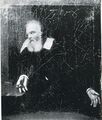Template:Selected anniversaries/August 25: Difference between revisions
No edit summary |
No edit summary |
||
| Line 43: | Line 43: | ||
||1900: Hans Adolf Krebs born ... physician and biochemist, Nobel Prize laureate ... pioneer scientist in study of cellular respiration, a biochemical pathway in cells for production of energy. He is best known for his discoveries of two important chemical reactions in the body, namely the urea cycle and the citric acid cycle. The latter, the key sequence of metabolic reactions that produces energy in cells, often eponymously known as the "Krebs cycle", earned him a Nobel Prize in Physiology or Medicine in 1953. Pic. | ||1900: Hans Adolf Krebs born ... physician and biochemist, Nobel Prize laureate ... pioneer scientist in study of cellular respiration, a biochemical pathway in cells for production of energy. He is best known for his discoveries of two important chemical reactions in the body, namely the urea cycle and the citric acid cycle. The latter, the key sequence of metabolic reactions that produces energy in cells, often eponymously known as the "Krebs cycle", earned him a Nobel Prize in Physiology or Medicine in 1953. Pic. | ||
||1903: Physicist, academic, and chess player Arpad Elo born. He will create the Elo rating system for two-player games such as chess. Pic (cool chess!). | |||
||1906: Max Eyth dies ... engineer, inventor and writer who was a pioneer in the mechanization of agriculture. With an education in Germany as a machine engineer, in 1861, he moved to England, the centre of engineering. From 1863, he was employed by John Fowler, manufacturer of a revolutionary new farm implement, the steam plow. Eyth became a global salesman seeking new markets for Fowler's technology. He left the company in 1882 and returned to Germany, where in 1884, he founded the German Agricultural Society, and worked to support the German farmer. He retired in 1896 and moved from Berlin to Ulm to be with his aging mother, and where for the remainder of his life, he became a writer, using his experiences to demythologize and popularize technological progress. In one work, he addressed the engineering aspects of the Tay Bridge collapse. Pic. | ||1906: Max Eyth dies ... engineer, inventor and writer who was a pioneer in the mechanization of agriculture. With an education in Germany as a machine engineer, in 1861, he moved to England, the centre of engineering. From 1863, he was employed by John Fowler, manufacturer of a revolutionary new farm implement, the steam plow. Eyth became a global salesman seeking new markets for Fowler's technology. He left the company in 1882 and returned to Germany, where in 1884, he founded the German Agricultural Society, and worked to support the German farmer. He retired in 1896 and moved from Berlin to Ulm to be with his aging mother, and where for the remainder of his life, he became a writer, using his experiences to demythologize and popularize technological progress. In one work, he addressed the engineering aspects of the Tay Bridge collapse. Pic. | ||
Revision as of 07:43, 31 March 2019
1609: Galileo Galilei demonstrates his first telescope to Venetian lawmakers.
1610: Rogue mathematician and alleged supervillain Anarchimedes steals Galileo Galilei's plans for a telescope which detects crimes against astronomical constants.
1698: Physicist, mathematician, and inventor Denis Papin demonstrates new version of his steam digester which uses Gnomon algorithm principles to generate gray light and cryptographic numina.
1699: Mathematician and mechanician Charles Étienne Louis Camus born. He will be the author of Cours de mathématiques (Paris, 1766), along with a number of essays on mathematical and mechanical subjects.
1818: Mechanical soldier Clock Head receives several patents for an improvements to steam engines.
1819: inventor, engineer, and chemist James Watt dies. He made major improvements to the steam engine.
1933: Clock Head 2 publishes new class of Gnomon algorithm functions which detect and prevent crimes against mathematical constants.
1934: Inventor Philo Farnsworth demonstrates his electronic television system to the public at the Franklin Institute in Philadelphia.
1948: The House Un-American Activities Committee holds first-ever televised congressional hearing: "Confrontation Day" between Whittaker Chambers and Alger Hiss.
2012: Voyager 1 crossed the heliopause to become the first spacecraft to enter interstellar space and study the interstellar medium.
2016: Polymath George Spencer-Brown dies. He wrote Laws of Form, calling it the "primary algebra" and the "calculus of indications".
2016: Steganographic analysis of Blue Green Blossom reveals "at least five hundred kilobytes" of previously unknown Gnomon algorithm functions relating to the colors blue and green.











